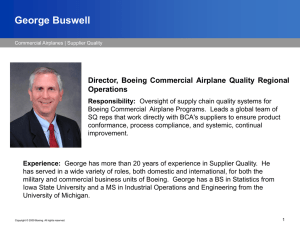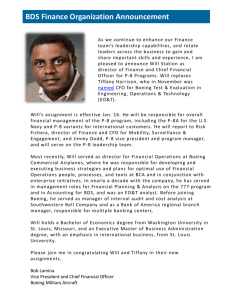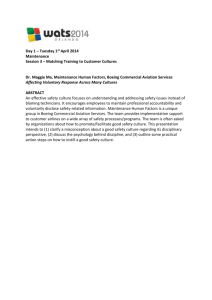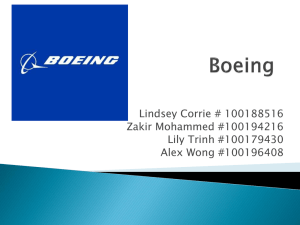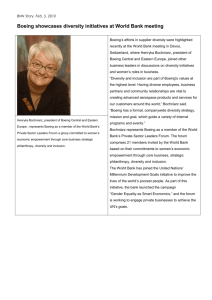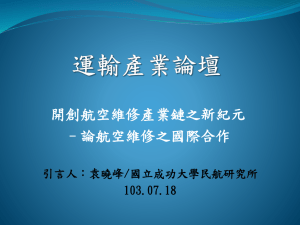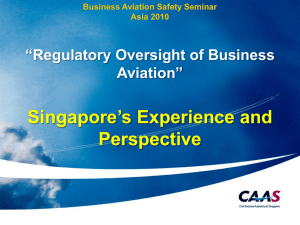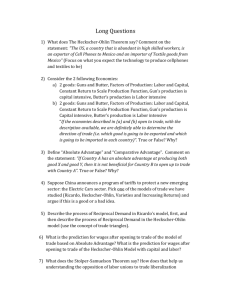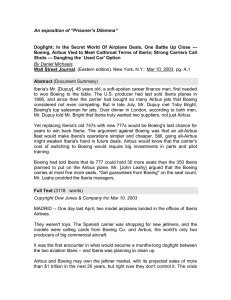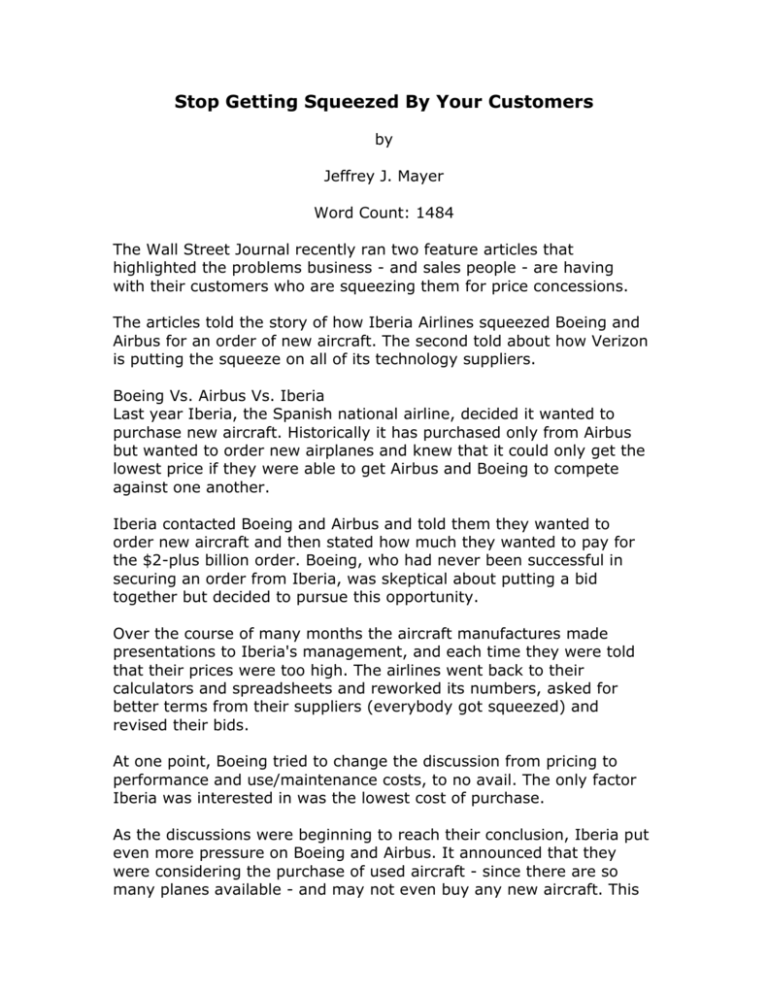
Stop Getting Squeezed By Your Customers
by
Jeffrey J. Mayer
Word Count: 1484
The Wall Street Journal recently ran two feature articles that
highlighted the problems business - and sales people - are having
with their customers who are squeezing them for price concessions.
The articles told the story of how Iberia Airlines squeezed Boeing and
Airbus for an order of new aircraft. The second told about how Verizon
is putting the squeeze on all of its technology suppliers.
Boeing Vs. Airbus Vs. Iberia
Last year Iberia, the Spanish national airline, decided it wanted to
purchase new aircraft. Historically it has purchased only from Airbus
but wanted to order new airplanes and knew that it could only get the
lowest price if they were able to get Airbus and Boeing to compete
against one another.
Iberia contacted Boeing and Airbus and told them they wanted to
order new aircraft and then stated how much they wanted to pay for
the $2-plus billion order. Boeing, who had never been successful in
securing an order from Iberia, was skeptical about putting a bid
together but decided to pursue this opportunity.
Over the course of many months the aircraft manufactures made
presentations to Iberia's management, and each time they were told
that their prices were too high. The airlines went back to their
calculators and spreadsheets and reworked its numbers, asked for
better terms from their suppliers (everybody got squeezed) and
revised their bids.
At one point, Boeing tried to change the discussion from pricing to
performance and use/maintenance costs, to no avail. The only factor
Iberia was interested in was the lowest cost of purchase.
As the discussions were beginning to reach their conclusion, Iberia put
even more pressure on Boeing and Airbus. It announced that they
were considering the purchase of used aircraft - since there are so
many planes available - and may not even buy any new aircraft. This
forced the companies to work even harder to lower their price.
In the end, Airbus won the order, but got hammered pretty good.
Boeing felt that Iberia made the wrong decision.
Verizon Vs. Technology Suppliers
Shaygan Kheradpir, Verizon's chief technology officer is doing
everything he can to squeeze his suppliers so he can reduce his
company's technology costs.
Consultants have been fired, saving $50 million.
Large computer purchases have been curtailed, lopping off $120
million over the past two years. But these savings weren't enough.
Mr. Kheradpir wanted more.
He set his sights on IBM, Hewlett-Packard, Sun Microsystems, and
the other technology companies that sell hardware and software to
Verizon.
From Mr. Kheradpir's perspective, corporate computers are becoming
more like commodities. With wider adoption of software standards,
the machines are more interchangeable, making it easier for buyers
like Mr. Kheradpir to play one manufacturer against another.
And it worked for him... BIG TIME!
He told Sun, H-P and IBM that their share of Verizon's spending
would depend on how low their prices were.
All three immediately lowered their prices by 25 percent.
Sun and HP also slashed maintenance charges.
Sun went further, offering to provide software for Verizon's
planned development of another major service.
In the end, Sun increased its share of the shrunken $2 billion budget.
HP also gained, while IBM lost ground.
What Can We Learn?
The most important thing that I learned from reading these articles is
that when the only issue your customer is concerned about is price,
you can only lose.
As a supplier, you'll get skinned alive.
We talk about having Win-Win relationships in selling. Iberia and
Verizon aren't interested in Win-Win. They only want the lowest prices.
Nothing else matters.
If you're running a business and not making money, everybody
suffers. The goal isn't to have large gross sales, it's to have a strong
bottom line.
What's the value of having a lot of volume flow through your
business, if you've no profits to show for it? When you quote a project,
or sell a product, for very little profit, your margin for error is very
thin.
Should there be a problem or something unexpected happens, a small
profit will turn into a very large loss.
The primary focus in business today appears to be on sales volume.
Everybody talks about their sales volume. But the name of the game
is net profits, i.e. the amount of money you've got after expenses.
(Very few people talk about that.)
I think everybody should have an MBA: A Massive Bank Account!
You must also get paid for the products or services that you sell.
If you're selling a lot of product, but not making money, at the end of
the day you don't have much to show for your effort.
During the dot-com craze, lots of companies were showing sales and
profits - on paper - but weren't getting paid. The most important part
of running a business is cash flow. The amount of money you have in
the bank!
No business ever got into trouble by having too much cash.
Protecting Yourself From Price Competition
You can't avoid price competition, but here are three
things you can do to protect yourself:
1. Have Lots Of Prospects.
If you've only got a few prospects, than you've put yourself at the
mercy of the seller. In Boeing and Airbus's case, there aren't many
opportunities to bid on new aircraft so they both wanted very badly to
get the order.
And with the terrible state of the airline industry, there aren't many
orders to bid on.
For you and me, if we've only got one or two prospects, we don't
have any flexibility. Each opportunity is of the highest importance.
If you close it, you're a hero - and you've some money in your
pocket. (Assuming it's priced right.) But if you don't you're in trouble.
When you've lots of prospects, no single opportunity is that
important to you. If it closes, that's wonderful, but if it
doesn't, you know that one of your others will.
A customer who is only interested in doing business with the supplier
with the lowest price has no interest in developing long-term
relationships.
In Boeing's case, the WSJ article gave the impression that they were
starting out as the underdog. On at least one occasion Boeing tried
to change the topic of discussion from price to aircraft performance.
Iberia wasn't interested in discussing performance or the fact that
Boeing's aircraft had lower maintenance costs. The only
thing they were interested in was price.
Imagine what would have happened if Boeing had said at that point
that it wasn't interested in only discussing price and would
decline to bid on Iberia's order.
Iberia would have been in a terrible bind. You can't squeeze
your suppliers if you've only got one supplier bidding.
By threatening to walk away the negotiating strategies change.
The leverage could have shifted to Boeing's favor.
I know that it takes guts to walk away from what could be a very
important order, but you want to be negotiating on mutually
beneficial - and profitable - terms.
2. Change The Subject To Value/Benefits
Verizon considers their technology purchases to be identical
commodities. From their perspective, there is no difference
between IBM, HP, or Sun.
From the article it appears that none of the companies tried to
differentiate the products and services that it sells from those of its
competitors. When the customer views a product as a commodity,
price is the only thing that matters.
I wonder what would have happened if any of the salespeople and
corporate executives at IBM, HP, or Sun had started to ask
questions of the technology people at Verizon.
Questions like:
Why do you need new equipment?
What do you want this equipment to do?
How did you go about selecting/identifying
the equipment you need?
Why doesn't your present equipment serve your needs?
Because your present equipment doesn't serve your needs,
how is this impacting your business?
What will happen if you don't purchase this new equipment?
How did you determine the price you said you want
to pay for this equipment?
What if the equipment you purchase doesn't work properly?
Once you begin asking great questions of your customer your
relationship changes. You are no longer simply a vendor selling a
commodity.
You become a valued advisor/counselor whose knowledge, training,
education, experience and wisdom makes you a valuable resource to
the customer.
Jeffrey Mayer helps business owners, corporate executives and sales
professionals, set their priorities, get focused, and achieve their goals,
so they can grow their business, get ahead in life, and live their
dreams. This article is reprinted with permission from "Jeffrey Mayer's
Succeeding In Business Newsletter. To subscribe to Jeff's free
newsletter, visit http://www.SucceedingInBusiness.com. Copyright
2003, Jeffrey J Mayer. All rights reserved. For information about Jeff's
Keynote Presentations, contact the Frog Pond at 800.704.FROG(3764)
or email susie@frogpond.com; http://www.frogpond.com

